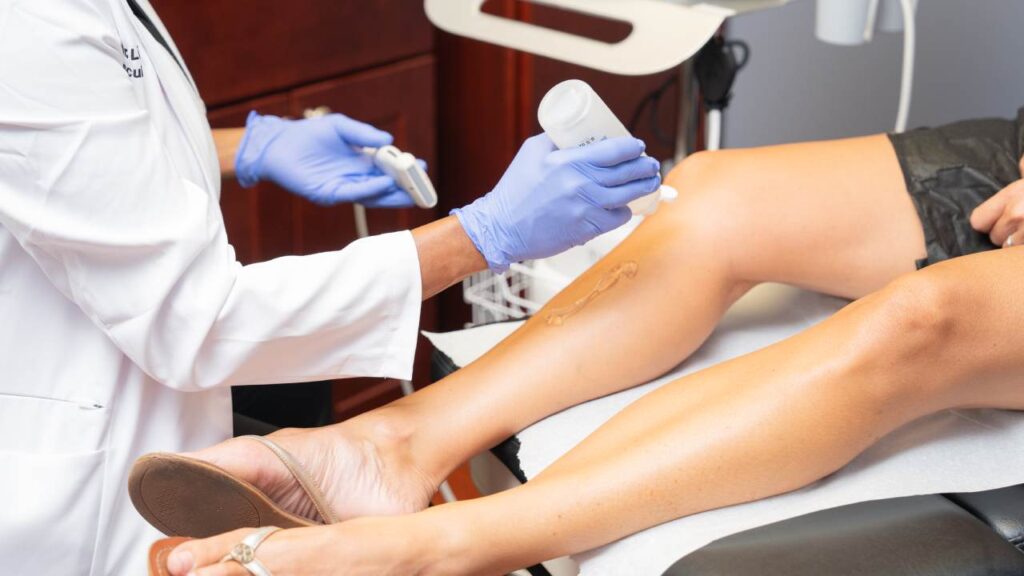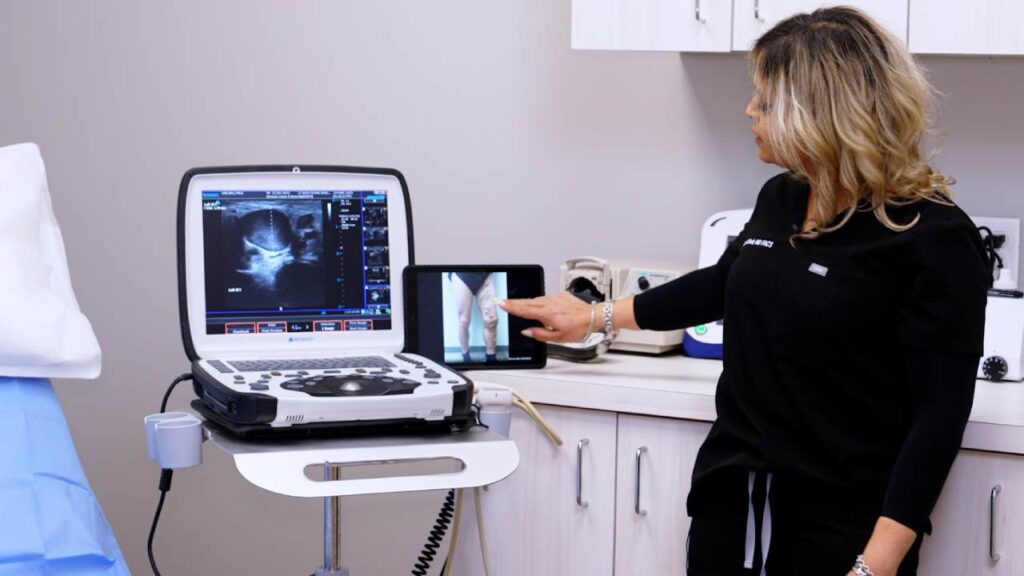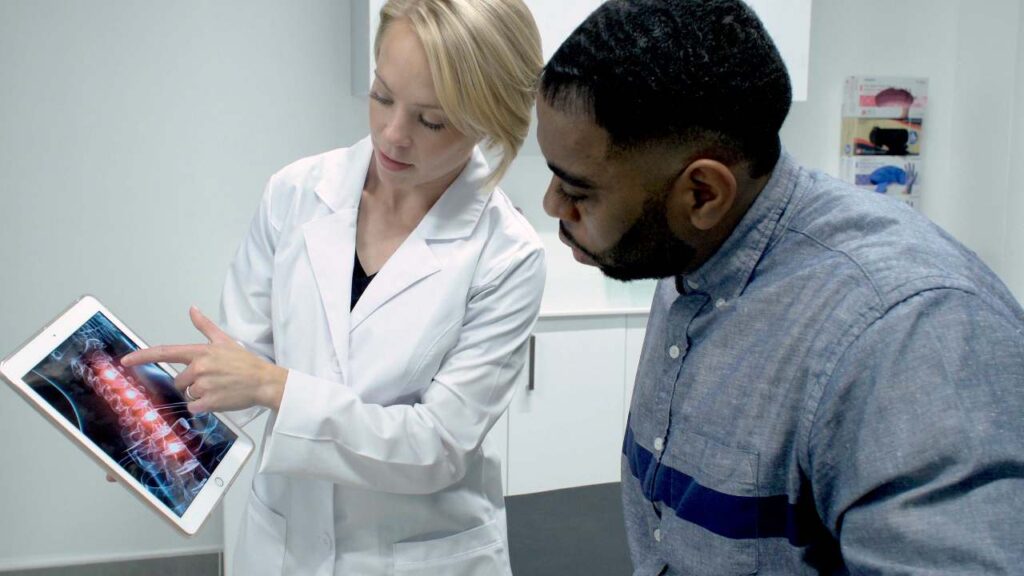The Best Way To Avoid Hip Replacements | The VIP Medical Group
What Is A Total Hip Joint Replacement?
If you’re wondering ‘how can I avoid hip replacements’ then we can provide the best advice from leading Harvard pain doctors. We’ll provide an overview of what a total hip joint replacement involves, the risks associated with this surgery, and why you should consider visiting a pain doctor to explore conservative treatment options.

Hip replacement surgery is a common surgery that is carried out across the United States. Hip pain is usually associated with damage caused by arthritis, a fracture, or even childhood hip disease. You might find that your hip becomes sore, stiff and/ or uncomfortable when walking, sitting or going about your daily activities. Activities that were once easy for you may become more difficult, such as bending down or sitting for long periods of time.
Hip replacement surgery (also known as total hip arthroplasty) is a surgery commonly used to treat a range of hip pain conditions. The hip joint is one of the largest joints in the body. It is a ball-and-socket joint, meaning that a partial spherical end lies within a socket and enables multi-directional movement. In the case of the hip, the socket is formed by the acetabulum (part of the pelvis bone) and the ball is the femoral head (thighbone). The bones are covered with cartilage which cushions the bones and facilitates easy movement. A synovial membrane surrounds the hip joint to ensure that the cartilage is kept lubricated and that no friction occurs when the hip joint moves. Ligaments are responsible for ensuring the ball and socket are joined and allow stable movement of the hip joint.
During hip surgery, an orthopedic surgeon may approach hip pain with one of the following techniques:
- Removal of femoral head (thighbone) to replace it with a metal stem that is inserted into the hollow center of the femur bone.
- A metal or ceramic ball is used to replace the femoral head that has been taken away.
- The cartilage surface (that may be damaged) is removed and replaced with a metal socket.
- A ceramic, metal spacer, or plastic component is put between the new ball and socket to enable a gliding surface.
Some orthopedic surgeons also recommend a partial hip replacement if some components of the hip joint can be salvaged.
The Number of Hip Replacements Per Year | Is Surgery Necessary?
If you struggle with hip joint pain, it is important to note that there are many conservative treatment options available to effectively treat your hip. Currently, there are more than 1 million total hip arthroplasty surgeries take place annually across the United States. This number is projected to increase to nearly 4 million by the year 2030. This begs the question – is surgery necessary?
If you think you meet the criteria for hip replacement symptoms, then you may be surprised to hear that there are many other treatment routes that do not require surgery. It is no secret that there are various hip replacement complications. Hip replacements are still a surgery, regardless of how commonly they are carried out by orthopedic surgeons. Unnecessary surgeries are risky, with risks including (but not limited to):
- Allergic reactions to medication and anesthesia
- Blood clots
- Excessive bleeding
- Long recovery periods
- Over-reliance on narcotics and NSAIDs
- Wound site infections
Many orthopedic surgeons hastily recommend either partial hip replacements or total hip replacements. However, these surgeries are not always necessary. Lengthy recovery periods and over-reliance on pain medicine have adverse health effects and it is well-known that the U.S. is currently facing an opioid epidemic.
The great news is that there are many effective, conservative treatment options available to help hip pain. These treatments boast faster recovery periods, avoidance of over-reliance on narcotics/ NSAIDs, and are carried out by Ivy League pain doctors. Best of all, these procedures will help you to avoid unnecessary surgeries. Let’s take a look at some of the best hip pain treatment options available.
Now that we’ve assessed the risks associated with unnecessary surgeries, let’s take a look at the best conservative treatments that avoid hip replacement. It is important to ensure that these medical procedures are carried out by an experienced and knowledgeable Board Certified pain doctor who can use the latest techniques in regenerative medicine to get you back to full health.
Steroid Injection/ Corticosteroids
This is usually the first treatment of choice for a conservative treatment option. As a treatment, it is far more powerful than over the counter anti-inflammatories and provides immediate pain relief that can last for weeks and even months following the procedure.
During this procedure, your pain doctor will topically anesthetize the area to be injected to ensure you are comfortable. They will also sterilize the area to ensure it is clean. Next, your pain doctor will insert the syringe needle into the tissue and the steroid/ corticosteroid will be injected directly into the tissue that is inflamed. This will provide immediate and effective pain relief. The injection area will then be wrapped in a sterile bandage to ensure it is kept free from potential bacteria.
These steroid injections are a great conservative treatment choice because they work quickly, directly target the area of inflammation, and provide instant pain relief that has long-lasting effects.
Hyaluronic Acid Injection/ Viscosupplementation
This procedure is usually the second treatment choice of pain doctors and is praised for its immediate effectiveness and quick procedural time.
Hyaluronic Acid is a component that is produced naturally in the body to ensure joint surfaces are kept slippery and lubricated. This enables sleek movement and prevents friction from occurring at the joint.
If you struggle with hip osteoarthritis, your body may not have an adequate amount of Hyaluronic Acid. This means that your joints can become inflamed due to friction if there is a lack of slippery joint surface. Your pain doctor’s job is to increase the volume of healthy Hyaluronic Acid to increase the suppleness of the joints and reduce the pain and inflammation caused by friction.
During this procedure, your pain doctor will disinfect the hip joint before administering a local anesthetic. Next, your pain doctor may choose to withdraw a small amount of Hyaluronic Acid from the hip joint in order to make space for the fresh injection of Hyaluronic Acid. Some doctors prefer to use an ultrasound to help guide the needle directly into the hip joint so that the area of pain is targeted directly. Once the injection has taken place, your pain doctor will withdraw the needle and will wrap the area in a sterile bandage to keep it clean.
Where Do You Feel Arthritic Hip Pain?
Here is a list including some symptoms of hip joint pain. However, it is highly recommended that you seek medical advice from a Board Certified pain doctor. If symptoms are left untreated, they can get progressively worse and even lead to further health issues.
Initial symptoms of hip joint pain include:
- Pain and stiffness in the hip (this can be a sign of hip arthritis)
- Hip pain that is worse in the morning or after sitting for periods of time
- A dull pain that is commonly felt in the hip, buttocks, thigh and/ or groin area
- Pain that is severe enough to cause a limp or prevent you from walking normally
If symptoms progress without medical intervention, leg deformities can occur. That’s why it is important to seek medical advice from a Board Certified pain doctor.
Pain doctors are experts in the diagnosis and treatment of functional pain. When you visit a pain doctor, they will assess your hip pain using a combination of physical examination, a verbal medical history, and may order scans (like ultrasounds and X-Rays). Based on the results, your pain doctor will recommend R.I.C.E. (rest, ice, compression, elevation) in conjunction with a physical therapist who will assist in strengthening the muscles. Pain doctors can also provide you with lifestyle modifications that may help your treatment, such as safe ways of losing weight or alterations to your daily movements.
What Is The Best Cardio For Hip Pain?
It is recommended that you speak to a pain doctor when exploring cardio options to help your hip pain. Pain doctors will answer any concerns you may have and can recommend the best physical therapist who will work with you on strengthening the muscles. A physical therapist can also offer the best hip arthritis exercises if your hip pain is a result of conditions like arthritis or just age-related wear and tear.
Some examples of the best cardio for hip pain include low impact sports, such as:
- Swimming – allows you to exercise many large muscle groups at once without a harsh impact on the hips
- Stationary Cycling – enables you to strengthen your quadriceps in a controlled way
- Walking – a natural and non-strenuous way to strengthen muscles
If you’re struggling with hip joint pain, consider seeking medical advice from a pain doctor. At the VIP Medical Group, our incredibly friendly and experienced team of Ivy League pain doctors can help you maximize your health through minimally invasive techniques.







